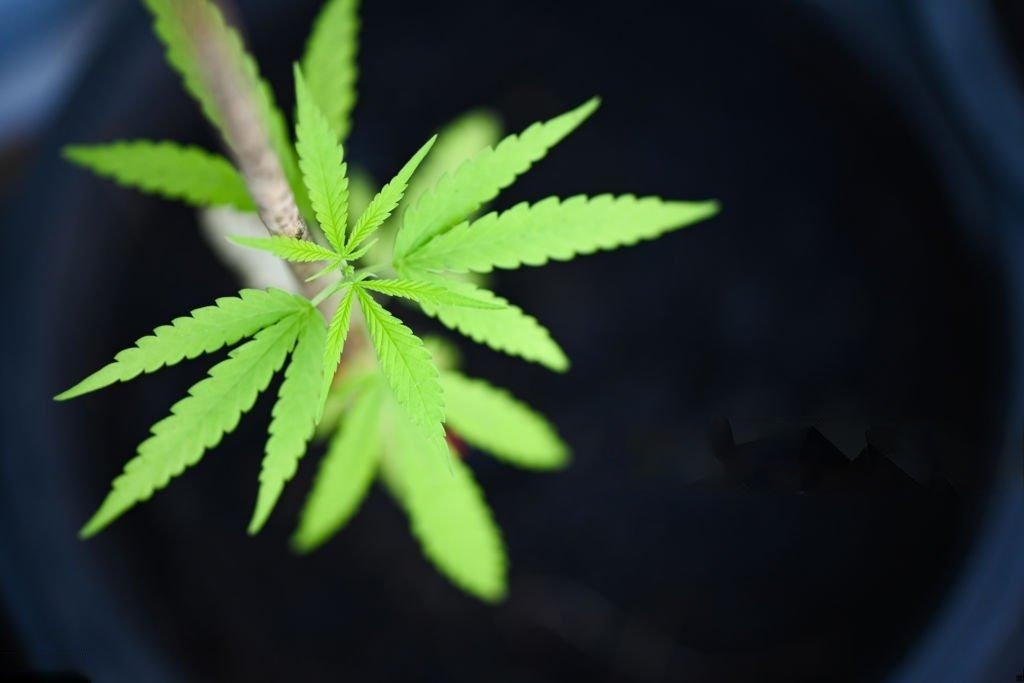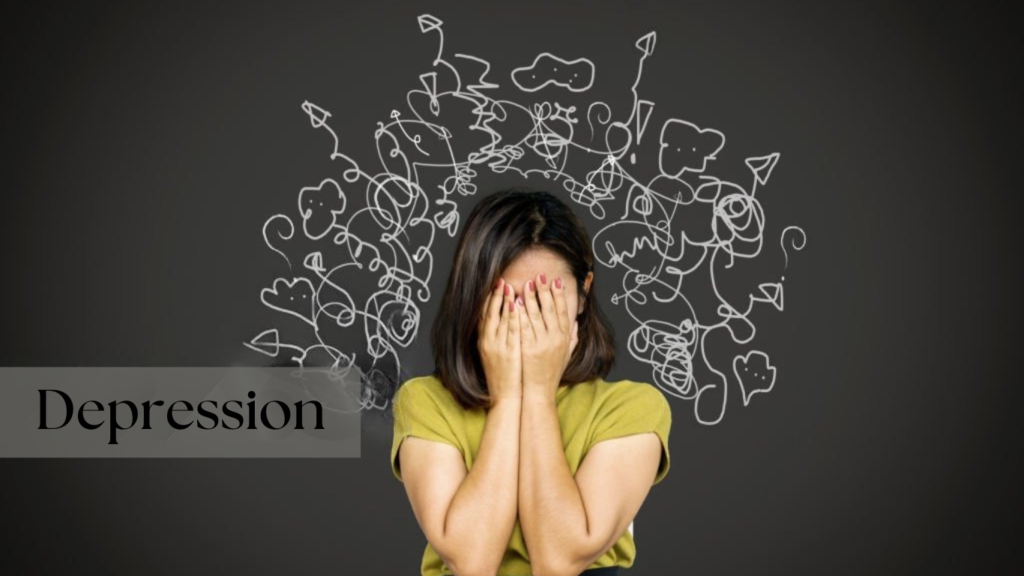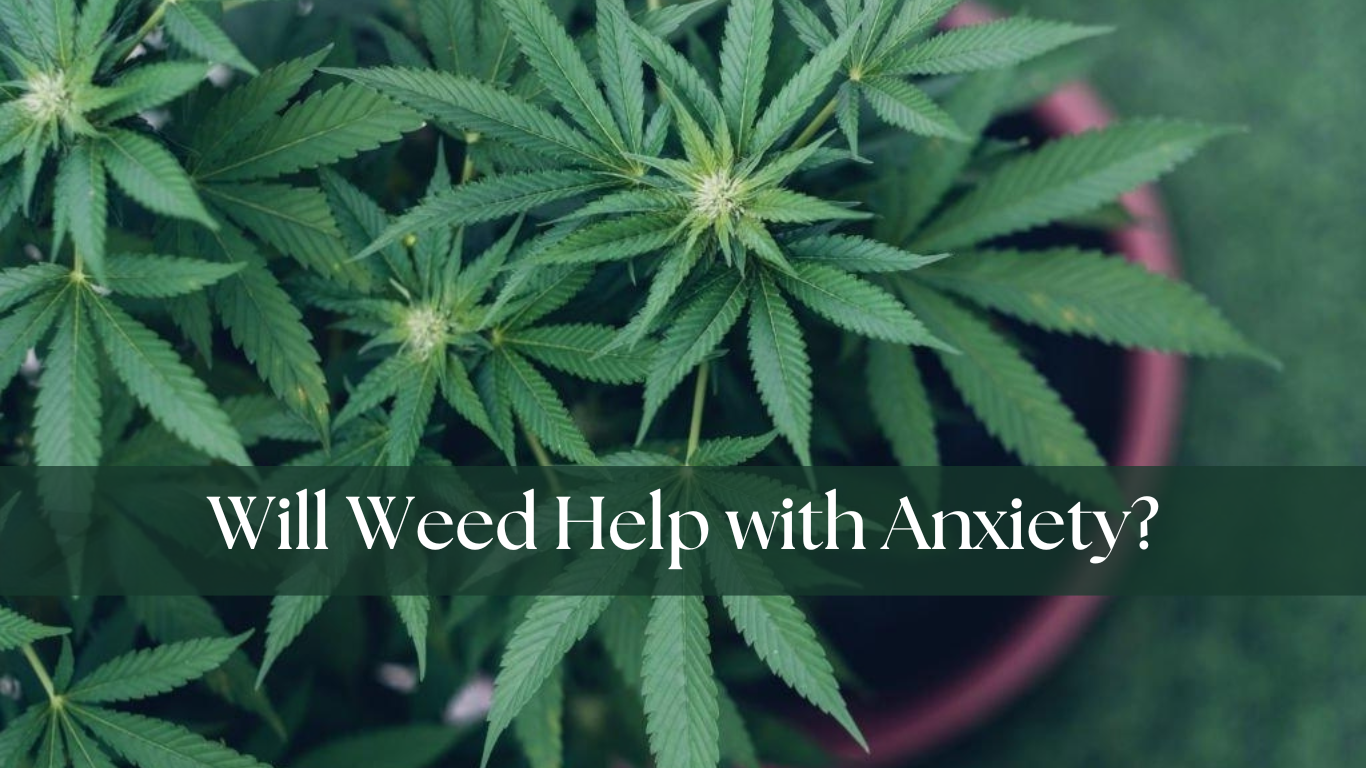Anxiety is one of the most common mental health issues today, affecting millions of people globally. From mild worrying to full-blown panic attacks, anxiety can manifest in various forms and severely impact daily life. With rising interest in alternative treatments, many are asking: Can Will weed help with anxiety?
As cannabis use becomes more accepted and legalized in many places, it’s important to understand how it affects mental health, especially for those struggling with anxiety. This article will explore whether cannabis is a viable solution for anxiety, looking at the roles of its key compounds, CBD and THC, and reviewing the scientific evidence.
Understanding Anxiety
Anxiety is more than just feeling nervous or stressed. It’s a mental health condition that can manifest as excessive fear, worry, or unease, often without any obvious reason. It can disrupt sleep, concentration, and even physical health.
Types of Anxiety Disorders
Generalized Anxiety Disorder (GAD): Chronic, excessive worry about various aspects of life.
Panic Disorder: Recurrent panic attacks characterized by intense fear.
Social Anxiety Disorder: Extreme fear in social situations.
Obsessive-Compulsive Disorder (OCD): Repetitive thoughts (obsessions) and behaviors (compulsions).
Traditional Treatments for Anxiety
Common treatments for anxiety include therapy (like cognitive-behavioral therapy), medications (such as SSRIs), and lifestyle changes. However, these approaches don’t work for everyone, leading some to seek alternative options like cannabis.
What is Weed?

Weed, or cannabis, comes from the plant Cannabis sativa. It’s made up of more than 100 compounds, the most well-known being THC (tetrahydrocannabinol) and CBD (cannabidiol). These compounds are what give cannabis its effects on the body and mind.
Differences Between THC and CBD
THC: The psychoactive component that makes people feel high.
CBD: Non-psychoactive and linked to therapeutic benefits without the high.
Cannabis and Mental Health
Cannabis has long been debated for its effects on mental health. While it has been shown to help with some conditions like chronic pain or PTSD, its effects on anxiety are more complex.
How Weed Affects the Brain
Cannabis affects the brain by interacting with the endocannabinoid system, which plays a role in regulating mood, stress, and anxiety. THC binds to receptors in the brain, potentially altering mood and perception
The Role of CBD in Anxiety Relief
Explanation of CBD and Its Non-Psychoactive Properties
CBD, or cannabidiol, is a compound found in cannabis that has gained attention for its therapeutic benefits, particularly for mental health conditions like anxiety. Unlike THC (tetrahydrocannabinol), which causes the “high” associated with marijuana, CBD is non-psychoactive. This means that it doesn’t alter your mind or behavior in the same way, making it an attractive option for those seeking relief without the euphoria or impairment.
Research on CBD for Anxiety Treatment
Multiple studies have explored the potential of CBD as an anxiety treatment. Research suggests that CBD may help reduce anxiety by altering serotonin signals, which play a role in regulating mood and emotions. A 2019 study published in The Permanente Journal found that 79% of participants experienced reduced anxiety after one month of CBD use.
Additionally, a study from Neurotherapeutics in 2015 highlighted CBD’s potential as a treatment for various anxiety disorders, including generalized anxiety disorder (GAD), social anxiety disorder (SAD), and post-traumatic stress disorder (PTSD). While more clinical trials are needed, initial results are promising.
How CBD Interacts with the Body to Reduce Anxiety
CBD interacts with the body’s endocannabinoid system (ECS), which plays a significant role in maintaining homeostasis our body’s balance across several physiological processes, including mood, stress, and anxiety. CBD binds to receptors in this system, such as CB1 and CB2 receptors, and is believed to help modulate the stress response, making it easier for people to handle anxiety triggers.
The Role of THC in Anxiety

How THC Differs from CBD in Effect
While CBD is celebrated for its calming effects, THC, the psychoactive component of cannabis, works differently. THC activates CB1 receptors in the brain, producing the euphoric “high” that many associate with recreational marijuana use. This can have varying effects on anxiety, with some finding relief and others experiencing worsened symptoms.
The Potential Benefits of THC for Anxiety
For some people, THC can help alleviate anxiety symptoms by inducing relaxation and altering perception. Lower doses of THC have been reported to have calming effects, making it easier for users to “escape” anxious thoughts or sensations. This is why some people turn to THC-containing cannabis strains to unwind or relieve stress after a long day.
Risks of THC for Anxiety Sufferers
Despite its potential benefits, THC is not without risks particularly for anxiety sufferers. In higher doses, THC can exacerbate anxiety, leading to feelings of paranoia, increased heart rate, and even panic attacks. This effect is often referred to as “THC-induced anxiety,” which is why individuals prone to anxiety may need to be cautious with THC consumption.
Scientific Studies on Weed and Anxiety
Summary of Key Research Studies
Scientific studies have provided mixed results when it comes to cannabis and anxiety relief. Some studies, like the one mentioned earlier in Neurotherapeutics, point to CBD as a promising treatment. On the other hand, research into THC is more divided. For example, a 2017 study published in the Journal of Psychiatry and Neuroscience found that while low doses of THC could reduce stress, higher doses had the opposite effect, increasing anxiety.
How Scientific Evidence Supports or Contradicts the Use of Cannabis for Anxiety
The overall scientific consensus is still forming. CBD has the most robust evidence backing its use for anxiety relief, while THC appears to offer mixed outcomes depending on dosage and individual factors. This has led to the common recommendation that people with anxiety lean towards CBD or cannabis products with a high CBD-to-THC ratio.
Pros and Cons of Using Weed for Anxiety
Benefits of Using Cannabis for Anxiety
- Natural Treatment: Cannabis, particularly CBD, offers a natural alternative to pharmaceutical medications, which can come with unwanted side effects.
- Versatility: With various consumption methods (oils, edibles, etc.), cannabis provides flexible options for those seeking relief.
- Fast-Acting: For some, cannabis, particularly when smoked or vaped, offers quick relief of anxiety symptoms.
Potential Risks and Side Effects
- THC-Induced Anxiety: High doses of THC can worsen anxiety or trigger paranoia.
- Dependence: Some users may develop a dependence on cannabis for coping, which could hinder long-term recovery.
- Impaired Judgment: THC can affect cognitive function and decision-making, which is particularly concerning for those who already struggle with anxiety.
CBD vs. THC for Anxiety: Which is Better?
Comparison of Effects on Anxiety
CBD tends to be the better option for anxiety sufferers due to its calming, non-psychoactive properties. THC, on the other hand, can be a double-edged sword—beneficial in low doses for some, but anxiety-inducing in others, especially at higher doses.
Which Is More Suitable for Different Types of Anxiety Disorders?
- CBD: Best for generalized anxiety disorder, social anxiety, and PTSD, given its calming effect without intoxication.
- THC: May help people with acute stress or panic, but should be used cautiously to avoid worsening symptoms.
How to Use Weed for Anxiety Relief
Best Forms of Cannabis (Oils, Edibles, etc.)
- Oils and Tinctures: Ideal for those seeking precise dosing and quick absorption.
- Edibles: Longer-lasting effects, but slower to kick in.
- Vapes and Smoking: Provides immediate relief, though may irritate the lungs.
Dosage Considerations
Start with a low dose, especially with THC-containing products. It’s always better to start small and adjust as needed. With CBD, doses between 10-50 mg are commonly used for anxiety.
Timing and Frequency of Use
For daily anxiety, consistent low doses of CBD may be ideal. THC, however, should be used sparingly and only when necessary, as frequent use may lead to tolerance or increased anxiety.
Legal Considerations of Cannabis Use
Overview of Legality by Region
Cannabis laws vary widely across the world. In the U.S., for example, cannabis is legal for medical or recreational use in some states but remains illegal at the federal level. Other countries, like Canada, have fully legalized both recreational and medical cannabis use, while many European nations have strict regulations.
Medical Marijuana Laws and Regulations
If you’re considering cannabis for anxiety, make sure to check whether medical marijuana is legal in your area and whether you qualify for a prescription. Some places only allow CBD products, while others regulate THC heavily.
Personal Considerations: Is Weed Right for You?
Factors to Consider Before Using Weed for Anxiety
- Sensitivity to THC: If you’re prone to paranoia or panic, avoid high-THC strains.
- Other Medications: Cannabis can interact with some medications, including anti-anxiety meds, so consult your doctor first.
- Personal Health: Consider your overall health, especially if you have a history of mental health conditions or substance abuse.
Alternative Treatments for Anxiety
Overview of Traditional Anxiety Treatments
- Cognitive-Behavioral Therapy (CBT): A highly effective therapy for anxiety.
- Medications: SSRIs and benzodiazepines are commonly prescribed for anxiety.
- Lifestyle Changes: Regular exercise, mindfulness meditation, and improved sleep can greatly reduce anxiety.
How Cannabis Fits into a Broader Treatment Plan
Cannabis can be one tool among many. It’s often best used in combination with therapy, lifestyle changes, and, in some cases, medication.
Myths and Misconceptions About Weed and Anxiety
Common Myths Debunked
- Myth: Weed always helps with anxiety.
- Fact: THC can actually worsen anxiety in some individuals.
- Myth: CBD is just a placebo.
- Fact: Research supports CBD’s role in anxiety relief.
Understanding the Facts vs. Fiction
While cannabis has potential benefits, it’s not a cure-all. Understanding the balance between THC and CBD is key to its successful use.
Conclusion
Cannabis, particularly CBD, holds promise as a treatment for anxiety, though its effects can vary widely based on the type of cannabis, dosage, and individual response. While CBD is generally well-tolerated and has shown potential for anxiety relief, THC may carry more risks, particularly for those prone to paranoia or panic. As with any treatment, it’s important to consult a healthcare provider and consider your unique needs before incorporating cannabis into your anxiety management plan.
FAQs
- Can weed completely cure anxiety?
Answer: No, cannabis can help manage symptoms but is not a cure for anxiety. - Is CBD alone effective for treating anxiety?
Answer: Yes, many studies suggest that CBD can be effective on its own for anxiety relief. - How quickly does weed help with anxiety symptoms?
Answer: Smoking or vaping provides quick relief, while edibles may take longer to kick in but last longer. - Can weed make anxiety worse?
Answer: Yes, particularly if the product has high levels of THC or is taken in high doses. - Should I consult a doctor before using cannabis for anxiety?
Answer: Absolutely. Consulting with a healthcare provider ensures safety, especially if you’re on other medications or have underlying conditions.

